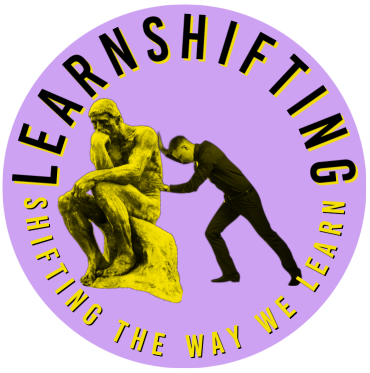I’m not a finance guy and I’ve made several money related mistakes. I am risk averse and approaching what could be referred to as a retirement age. I could stop working but enjoy the questions and challenges in my day job where folks are trying to get something done. I am more comfortable talking about real estate investment, but for a student just out of high school having parents in the middle income bracket – real estate investment generally comes a few steps after other options such as shares, ETFs (Exchange Traded Funds) and superannuation are explored.
In this post, apart from waffling on about some of my investing thoughts – I want to include some links from practical people with much more experience than me which might save you time if you are starting out. These couple of links might also be worthwhile to share with your children, grandchildren or anyone in general.
Why is it important? Using Microsoft Word, MS Teams, Adobe Photoshop and understanding internet security is great, but all that tech needs some life skills to make it worthwhile. So, life skills in financial management, or even the discipline of making your bed in the morning is as much part of the Learnshifting creed as creating compelling learning videos.
Getting ahead financially goes better with the typical subjects we talk about on Learnshfting.com, maybe better than making ones bed, but I am happy to concede that both have their place.
We don’t teach financial literacy well at school. (We also generally don’t teach students to make their bed.) I suspect as parents we do our best, but the people out there trying to skim what little excess cash young people have in a world of buy now and pay later have a better and slicker marketing engine than the kitchen table of mum and dad. Plus it is a hard and non-exciting task for all involved to sit down and discuss finance, especially when it doesn’t result in cash directly going into someone’s pocket – and it will be generally going into your offspring’s pocket – not the other way around.
I find it ironic that the leaders of our school leaders who are even more risk averse than me – if that was even possible – live for spreadsheets and charts that document compliance or increases in achievement – real or statistically manipulated and do nothing to provide financial life skills for students who will need to survive in a world that requires money as well as IT skills. It would be great if they could use their excel knowledge to share the benefits of compound interest on superannuation savings rather than measuring attendance and enrolment metrics.
This post is not about those kinds of people. This is about a boomer who didn’t, and to an extent still doesn’t have confidence in share investing but realises the need to shift my learning and share.
Over this last year, I have had a go at investing outside the real estate and superannuation space, more to inform my son honestly of my learnings, mistakes and wins with the small foray I have made into this space.
Working in the education system and having experienced the levels of financial literacy taught at some of the most challenged schools through to elite select entry schools, there is scope for improvement that will not meet the needs of your children in the next five years… so you should probably get involved yourself.
I have been dabbling for one year in the share market and thanks to two shares I have almost broken even… what I mean by that, sarcastically, is that I bought two shares that went bad very quickly.
My mistake with those two shares? I didn’t research the background story to the shares well enough.
Everything else I bought was based on the general and specific suggestions of Scott Pape (the barefoot investor) and Captain FI (financial independence) who both clearly know a lot more about investing than I do.
As a result of their suggestions and my selection of the software applications used to purchase shares, Selfwealth in this case, I learnt more about shares. The remainder of the shares I have purchased, which are all ETFs (Exchange Traded Funds) have done better than if I had left the money in the bank. I’ll add in here a link to good little video explaining ex-dividend and cum-dividend.
Had I simply followed the advice of those two gents, I would be in a much better position, BUT, I wouldn’t have learnt some great lessons which to date have cost me a total of $33. You can’t take a financial course for that amount.
So, I recommend you follow the links above for a read. They not only provide you with fundamentals useful for people of all ages – especially those starting out to build a nest egg or those trying to recover from some bad financial experiences, but when you (or your children) do have a little nest egg to invest – the second person, Captain FI provides some great links to tools to actually invest in ETFs (his and my recommended choice for shares investing) and tools to manage and report to the wonderful tax people on your shares.
Magically, you will find that the tax department and your tax guy (accountant) if you have one, automatically gets all of your information served up to her or him including your earnings, bank interest, shares, super and basically everything except the money under your pillow. If you don’t operate in the black economy, big brother certainly knows your financial details and status better than you.
As a result of reading Scott Pape’s book and becoming more engaged in seeing how my son could learn about investing without making it his sole reason for existence, I reached some conclusions and decisions that as a parent on a budget, I was comfortable with.
If you are a parent with a child of university age or they are starting out in the workforce, I recommend putting a little into a super fund they set up as a gift that will continue to give, even after you are gone. If you are struggling to put bread on the table then this is probably not a discussion of interest but speaking of interest – the compounding nature of interest on the superannuation investment started when someone is young makes a massive difference to that person’s independence in later life when they want to use that super in retirement.
I make a small quarterly after-tax investment payment into my son’s superannuation which will continue until his own annual super contribution is double what I contribute. This is not a lot, but it gives him a head start in the compound interest stakes of the superannuation world.
So, invest in super as early as you can and invest in an index managed fund with the lowest fees possible from a super company like Hostplus or Australian Super. It is the super fees that as young people you don’t think about, but later in life the impact hits you where it hurts and when you need it.
I watch the crypto story unfolding and wish all investors in that space the best of investing luck. It is not a space for me but that doesn’t mean it is wrong. At the outset I mentioned I was risk averse. So, as a parent, my decision is not to support with funds any investment in crypto, but if my son wants to do it, I support it 100% and hope he does more research on the investment than I did with the two lemon shares I purchased.
On a closing note, teaching is most effective when there is listening, or a need is present. The wonderful time of youth where tomorrow is the extent of planning undertaken, talk of superannuation that can’t be touched for forty years won’t rate highly in the conversation stakes.
Personally, real estate, superannuation and ETFs with a little cash is the mix that I am comfortable with as a boomer. A twenty-year-old version of myself might be saving for holidays, a car and a house… but the problem is that there hasn’t been much that legally offers good returns on investments when you are just starting out.
Finally, a good education and family love are the two most important ingredients you can provide. After that, anything is a bonus.

